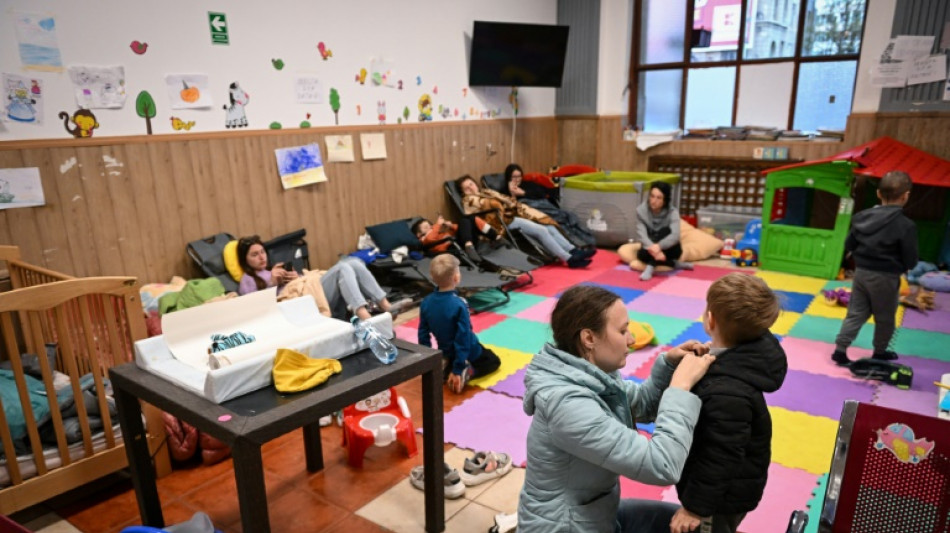

Web of support for Ukrainian refugees in Romania
Eyes glued to her two screens, Romanian Olivia Vereha works tirelessly to make sure an essential website for Ukrainian refugees runs smoothly.
Vereha, 34, is a co-founder of non-profit organisation Code4Romania that launched a platform called "dopomoha", the Ukrainian word for "help".
"The pressure is enormous, because things can change from one hour to another," especially when the flow of refugees increases suddenly, said Vereha, who is also chief operations officer.
Just 48 hours after Russia's invasion in February, the Romanian IT experts set up the website with a wealth of contacts and information aimed at helping those fleeing Ukraine to neighbouring Romania.
To date, nearly one million people have used dopomoha.ro, making it an indispensable tool for Ukrainians who suddenly find themselves in a country where they don't know the language, places or laws.
The website provides answers in four languages -- Ukrainian, Russian, English and Romanian.
More than 700,000 Ukrainians have entered Romania so far, of whom around 80,000 have remained. In total, more than 4.7 million have fled Ukraine since the invasion began, according to the UN refugee agency UNHCR.
- Verified information -
Co-founder Bodgan Ivanel said Code4Romania's 15 employees and some 500 volunteers from across the world, who work with the group, laboured "tirelessly" for two days to set up dopomoha.ro.
"Everybody these days should learn this word" dopomoha, the 34-year-old told AFP from the headquarters in Bucharest.
Partnering with the UNHCR and the Romanian government, the site also has information on the risks of human trafficking with women and children making up the overwhelming majority of refugees.
"99.99 percent of people who want to help are doing so in good faith. But when you get into the car of a stranger, it is important to be able to recognise the signs indicating that you are dealing with a possible trafficker," UNHCR Bucharest spokeswoman, Gabriela Leu, told AFP.
Leu said she welcomed the platform's "reliability". Code4Romania also works with the authorities to keep track of those transporting or accommodating refugees.
Victoria Molodih, a 45-year-old volunteer at Bucharest's main train station welcoming refugees, said she has used the platform to help Ukrainian families find accommodation and navigate paperwork.
"We have posters with it all over the station," she said.
- Digitise Romania -
In its six years of operation, Code4Romania has a solid track record, working with the government to register voters and transmit election results in 2016 and to inform the public during the coronavirus pandemic.
The NGO aims to solve social problems with the help of technology in Romania where, despite being named Eastern Europe's Silicon Valley, digital services lag behind.
On the eve of the Russian invasion, the team was preparing to launch a case management system for organisations working with victims of domestic violence, a scourge that rages under the authorities' indifferent gaze.
The project has been put on hold -- alongside another intended to allow better civil society coordination -- for the team to focus on dopomoha.ro.
Code4Romania is one of a number of initiatives launched in recent years to try to fix problems they say the state fails to address, with some NGOs even building critical infrastructure like roads and hospitals themselves.
Ivanel, who had lived abroad for 11 years, was in the Netherlands with three friends when he decided it was time to try to find "digital solutions" to create "a better, more functional Romania".
The turning point for him was a devastating 2015 Bucharest nightclub fire that killed 64 people and injured hundreds, triggering massive street protests against Romania's lax enforcement of safety standards.
While Code4Romania has set itself the task of "digitising Romania because of the state's inability to carry out this operation," Ivanel remained hopeful about the younger generation, who work alongside him.
B.Agosti--IM




